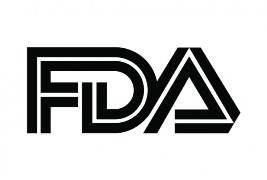 Three years after warning Bio Health Solutions of Las Vegas to stop marketing its unapproved compound, RenAvast, for veterinary use, the FDA has filed a consent decree against the company and its owner. The company had been marketing RenAvast to treat a variety of kidney conditions in cats and dogs, including chronic renal failure, the FDA alleges. The action, filed July 10 by the U.S. Department of Justice and the U.S. Attorney's Office for the District of Nevada, prevents the company from marketing RenAvast or any other unapproved drug.
Three years after warning Bio Health Solutions of Las Vegas to stop marketing its unapproved compound, RenAvast, for veterinary use, the FDA has filed a consent decree against the company and its owner. The company had been marketing RenAvast to treat a variety of kidney conditions in cats and dogs, including chronic renal failure, the FDA alleges. The action, filed July 10 by the U.S. Department of Justice and the U.S. Attorney's Office for the District of Nevada, prevents the company from marketing RenAvast or any other unapproved drug.
The FDA sent a warning letter to Bio Health in 2012, citing a number of improper statements on its website for RenAvast, including "RenAvast was highly successful in halting the progression of Chronic Renal Failure and in most cases improved kidney function," and "Chronic Renal Failure is no longer a death sentence." The FDA pointed out that any product meant to treat or prevent disease in animals is a "new animal drug" by law and therefore must be approved by the FDA.
According to the complaint, the company vowed to remove the offending statements, but instead put them on a password-protected website and continued selling RenAvast. Among those buying the product were undercover FDA agents. "A customer service representative informed undercover FDA investigators how they could acquire RenAvast, without a prescription, directly from an online retailer," the complaint alleges.
While the company removed most of the offending language from its open website (www.renavast.com), the product is still being marketed as a supplement as is made available to veterinarians by many of the major veterinary distributors, including Henry Schein ($HSIC) and Patterson ($PDCO), according to the site.
Under the terms of the decree, Bio Health must stop selling RenAvast unless it obtains FDA approval, shell out $5,000 for each violation of the Federal Food, Drug, and Cosmetic Act (FDCA), and pay all the FDA's costs related to the litigation. The company can petition to have the restrictions lifted after 5 years.
This is the latest in a string of actions taken by the FDA against companies marketing unapproved drugs to treat companion animals. In April, North Carolina shut down Fayetteville-based Prescription Center Pharmacy after the FDA found that the compounder was selling veterinary drugs of questionable stability, potency and sterility. Last year, the FDA warned three companies to stop marketing unapproved tear-stain removers for cats and dogs that contain antibiotics.
In May, the FDA released draft guidance containing rules for compounding veterinary drugs from bulk substances. Under the guidance, compounders would have to register as "outsourcing facilities" with the FDA in order to be able to make animal drugs from those approved ingredients.
With this most recent action against Bio Health, the FDA is making it clear that it intends to continue cracking down on veterinary drugs that do not have legal marketing clearance. "The Federal Food, Drug, and Cosmetic Act's new animal drug approval requirements provide important protections for consumers and their animals," said Bernadette Dunham, director of the FDA's Center for Veterinary Medicine, in a press release from the agency about the RenAvast case. "We believe consumers should be able to trust that the drug products they administer to their pets have been proven to be safe and effective."
- here's the FDA's statement
- access the complaint against Bio Health here (PDF)
- read more at Courthouse News Service
- read the original FDA warning letter